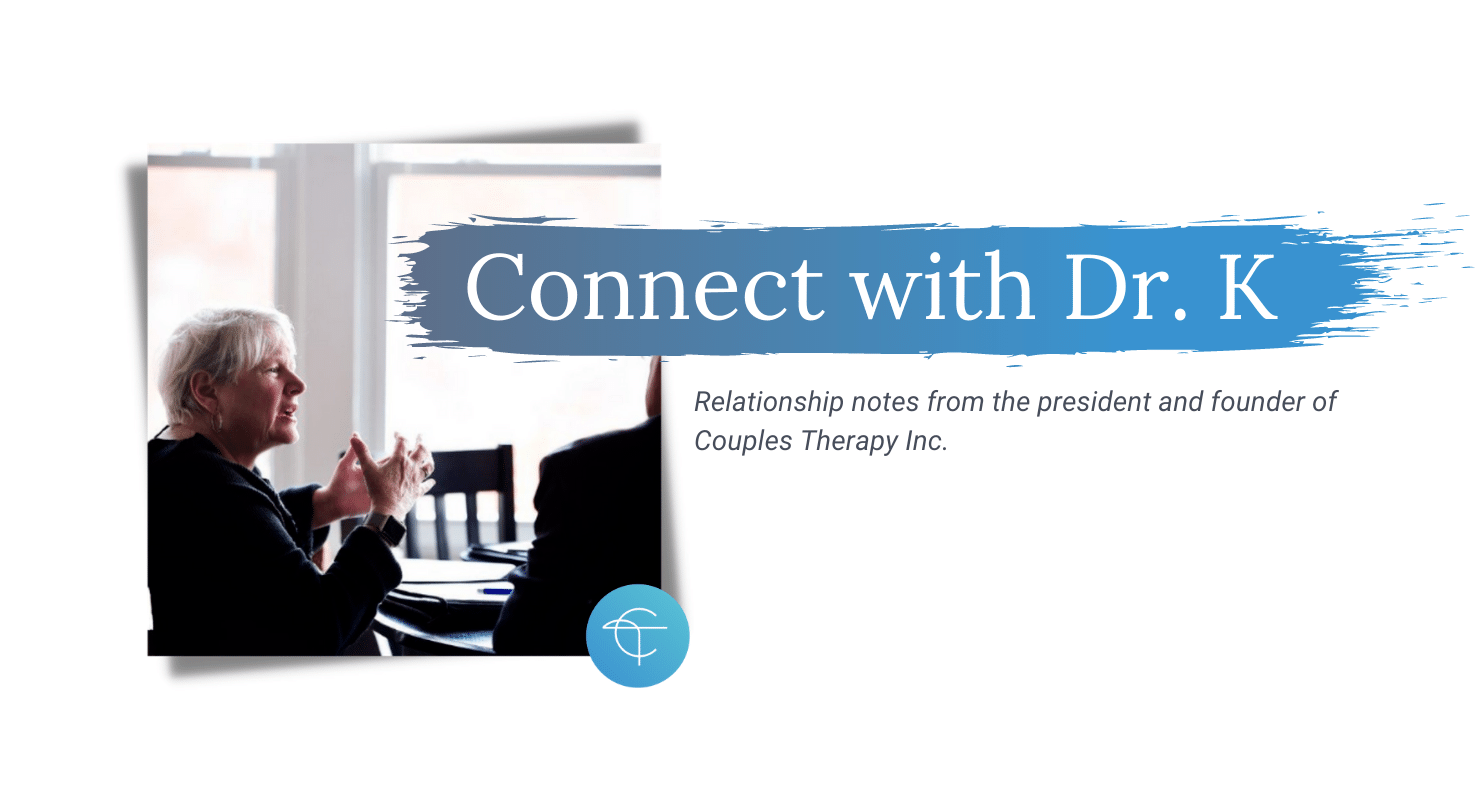What’s the hardest part of being a couples therapist?
The hardest part of being a couples therapist is to face two people that want to divorce, but believing deeply in my heart that they achieve nothing positive by doing so. Of course, I don’t fight with them about it. They both need to be in it to win it.
But I feel so sad that the potential is there if they are motivated but the motivation is missing for both of them. Many have a “wait and see” attitude, expecting to see changes in their spouses before putting any energy into it themselves. This situation is particularly tough when there are children involved. Your lack of effort means a certain dramatic change in their lives…without their permission.
It doesn’t surprise me, no. At the start of every intensive, I know (because of reading the BIG BIG Book) the issues that face the couple. I know the personal challenges each of them must overcome. And I know that I’m totally dedicated to giving it 110% to help them to navigate these waters over the next several days. I do not know the outcome, however. It comes sometimes as a surprise when after giving them feedback about their relationship, (and hearing that while there are challenges the relationship is strong) that both have such little motivation to do the hard work.
Fortunately, it doesn’t happen often. Most of the people I see, while miserable and feeling hopeless, are willing to hear the tough messages I give. They are relieved to know there is a clear path forward. Maybe they have done months or years of therapy before, but it was the “fight of the week” kind that left them even more convinced they don’t belong together.
After being in the field as long as I have, I can graciously accept that the couple simply won’t budge. But I first do a lot of pushing and pulling to determine whether this determination is defensive or real. And why they have come to couples therapy at all. Then I switch to discernment counseling to allow them both to be more certain of whether divorce is in their futures or not.
It shocks them, sometimes, to realize that a mutual refusal to put any effort into improving a very troubled marriage has consequences. Talking one-to-one with me sometimes allows them to identify the reasons why they do want to work on it. At other times, while they know that refusing to change means the end of the marriage, they are clear that it’s a price they are willing to pay. Then, while I remain a cheerleader for their marriage that I think has great potential (and I do tell them so) I humbly accept that my job is finished.
One couple I can think of offhand, (and you know who you are) just couldn’t find the time to keep up ongoing therapy with me. We all agreed after the intensive that both needed to keep coming. It was online, so it couldn’t have been easier. But it just wasn’t a priority for both of them. Each was waiting for the other one to schedule the sessions. Other things got in the way week after week. When I got the note from one of them that they were divorcing, I was sad, but not surprised. We did a session, then a 4-month break. All that time for such a troubled couple meant those months were full of painful exchanges, miscommunication, regrettable incidences and lost opportunities. And accusations that I simply didn’t tolerate.
Given the deep wounds both of them had, and the challenges they faced when they interacted, the pain was going to eventually overtake the great love, partnership, and parenting skills they had. I would tell them that they couldn’t simply schedule months in between (like some couples can) and expect us to get anywhere. Without positive momentum, they weren’t going to get where they wanted to go.
I don’t always tell a couple I work with to “keep coming.” Sometimes we’ll schedule a two-week follow-up fully anticipating that things will be on-track and they are headed in the right direction. But sometimes it’s obvious that continued clinical work is necessary to do. And I don’t say it for my own sake. It’s clear to all of us what we have to work on, it’s all spelled out for them. I act as a trail guide, or a coach in these cases, motivating them to focus their attention and put in the effort.
So, the couples with genuine, great potential but no motivation is the hardest part for me in being a couples therapist.


